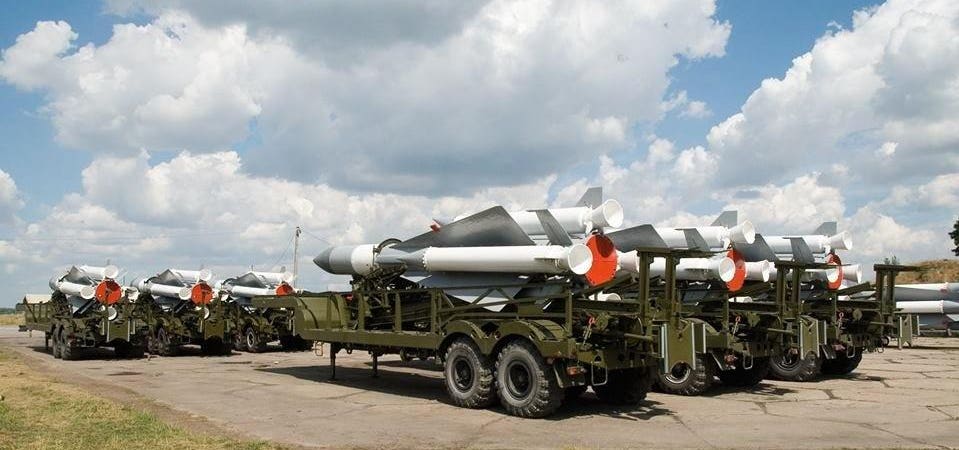We knew the Ukrainian air force was firing 1960s-vintage 5V28 air-defense missiles at targets on the ground in Russia.
We knew it, because we’ve seen fleeting evidence of the missiles in flight—or evidence of their remains, post-impact.
Now, for the first time, we’ve seen one of the do-it-yourself deep-strike missiles at the moment of launch. A video that circulated on social media on Monday depicts an eight-ton 5V28 blasting off from its fixed launcher then quickly popping off its side-mounted solid rocket boosters.
What’s most telling is where the launcher is located: apparently in the middle of nowhere, presumably somewhere on the Ukrainian side of the front line. That strongly implies the Ukrainians have adapted the launcher to be more mobile.
The S-200 system, which includes the 5V28 missile plus search and tracking radars, was the Soviet air force’s main long-range air-defense weapon throughout the 1960s, ‘70s and ‘80s. The Ukrainian air force inherited hundreds of the missiles, finally retiring them in 2013.
With a modern GPS or radar seeker—or both—plus a heavier warhead, the old 5V28 becomes a potent surface-strike weapon. It ranges around 250 miles, if you believe most sources, or 370 miles if you believe panicky Russian propagandists.
The 5V28 “is a honking big missile with a really heavy and voluminous seeker space,” Trent Telenko, a former quality auditor with the U.S. Defense Contract Management Agency, wrote on the social-media site formerly known as Twitter.
The missile’s 500-pound warhead accounts for just a fraction of its destructive potential. Any fuel still in its tanks at the moment of impact would add an incendiary effect to its blast effect.
The 5V28 is a product of the early Space Age. It’s unwieldy, explosive, toxic and massively overbuilt. While these attributes lend it striking power, they also make it immobile. The Soviet air force deployed the missile from fixed sites.
Some of those fixed sites were around major cities in Ukraine. But the Cold War-vintage Ukrainian launch sites, which might be hundreds of miles from the front line, hardly suit Kyiv’s 5V28 brigade or brigades in its, or their, new deep-strike role.
Notably, the Soviets designed the S-200 system to move by road, but only after crews craned the heavy equipment onto heavylift trucks. When it became evident the Ukrainians were firing 5V28s at targets on the ground, Telenko speculated they had streamlined the transport process.
Deployed near the front line, the 5V28 possesses the range to threaten Russian forces across occupied Ukraine as well as deep into Russia proper. On July 28, a Ukrainian 5V28 narrowly missed the Russian bomber base in Tagarong, 20 miles from the border with Ukraine.
Three weeks earlier, a 5V28 blew up an industrial site in Bryansk, in Russia around 110 miles from the Ukrainian border.
And while the Kremlin has claimed it has shot down 5V28s—most recently over occupied Crimea on Aug. 12—there are good reasons to be skeptical. The footage the Russians have provided as proof of the intercepts isn’t very convincing.
“The Russians keep claiming 5V28 missile kills but with no claimed intercept footage having the obvious evidence like big brown-black clouds of burned AK27F/TG02 propellant in the sky,” Telenko explained.
It’s not the Russians’ fault, really. Most air-defenses would struggle to hit an incoming 5V28, which at a top speed of Mach 4 can traverse its maximum range in just five minutes.
Even with a new seeker, the 60-year-old 5V28 might not be as accurate as, say, an American-made Army Tactical Missile System is. But it strikes just as far. And more importantly, it’s available now.
While the Ukrainians wait for the administration of U.S. president Joe Biden to ship the first small batch of ATACMs that Biden pledged this month, they make do with their unwieldy—but powerful—5V28s.
Read the full article here





